Find Help
More Items From Ergsy search
-
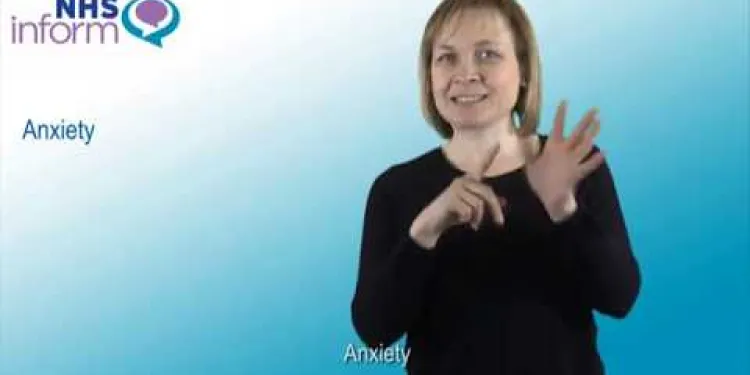
Generalised anxiety disorder (GAD)
Relevance: 100%
-
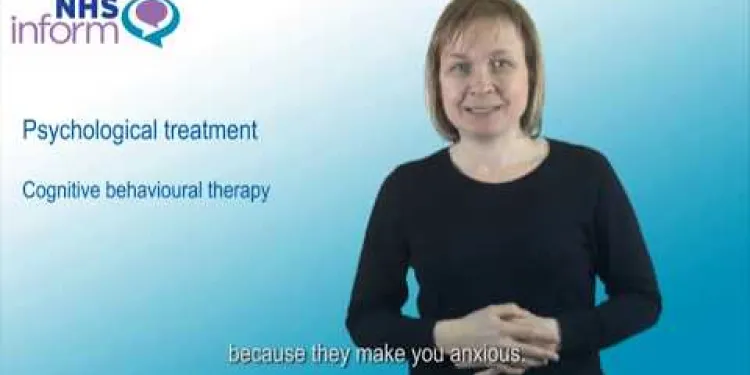
Treating generalised anxiety disorder (GAD)
Relevance: 93%
-
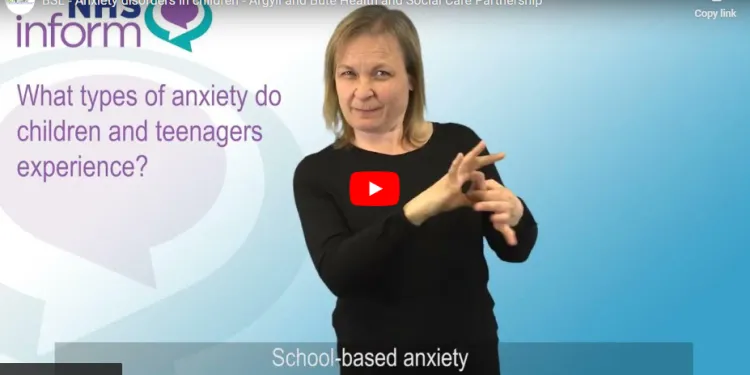
What type of anxiety do children and teenagers experience?
Relevance: 56%
-

Anxiety | NHS
Relevance: 46%
-
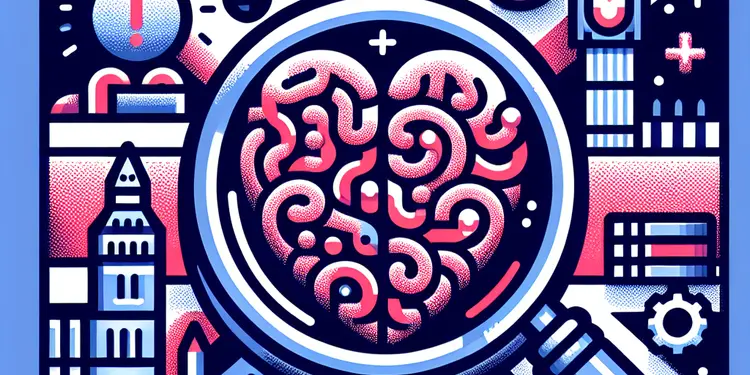
Is health-related anxiety a common condition?
Relevance: 43%
-
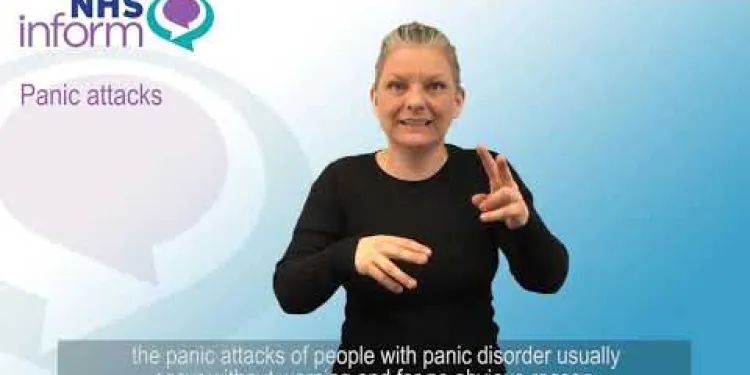
BSL - Diagnosis of panic disorder
Relevance: 43%
-
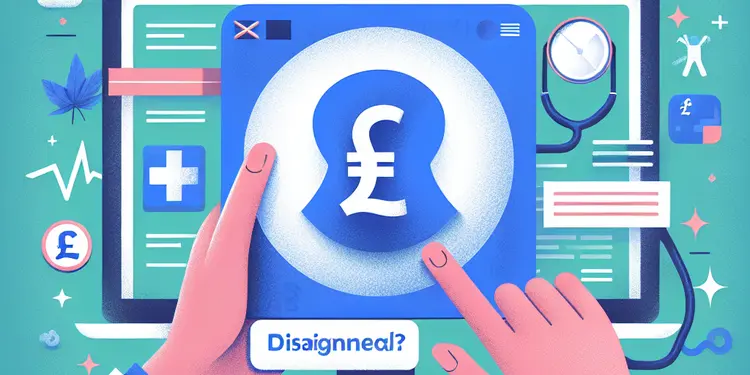
How is health-related anxiety diagnosed?
Relevance: 37%
-
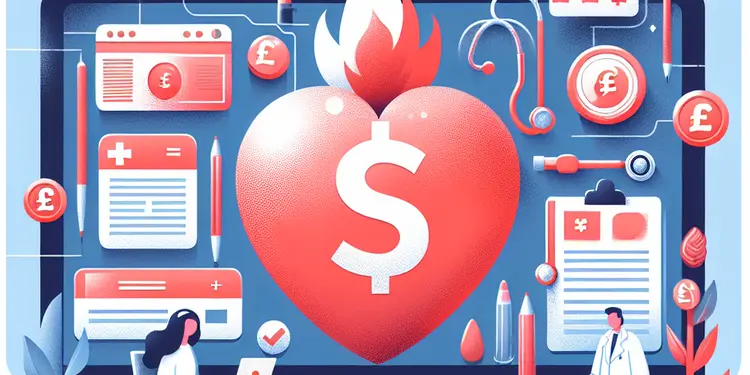
What is health-related anxiety?
Relevance: 37%
-
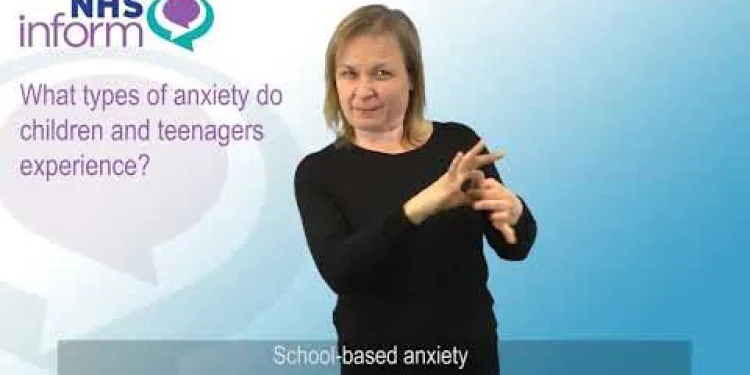
Anxiety in young people
Relevance: 37%
-
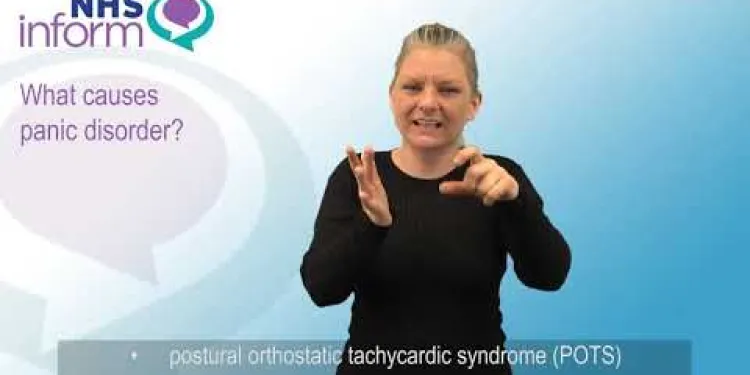
BSL - Introduction to panic disorder
Relevance: 37%
-

Can Music Therapy Be the Key to Reducing Anxiety?
Relevance: 36%
-
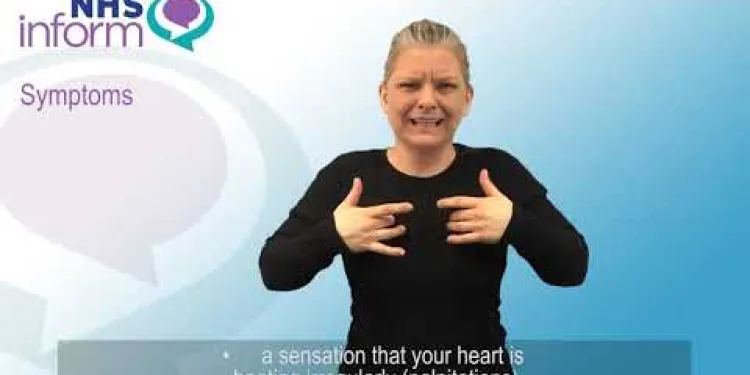
BSL - Symptoms of panic disorder
Relevance: 35%
-
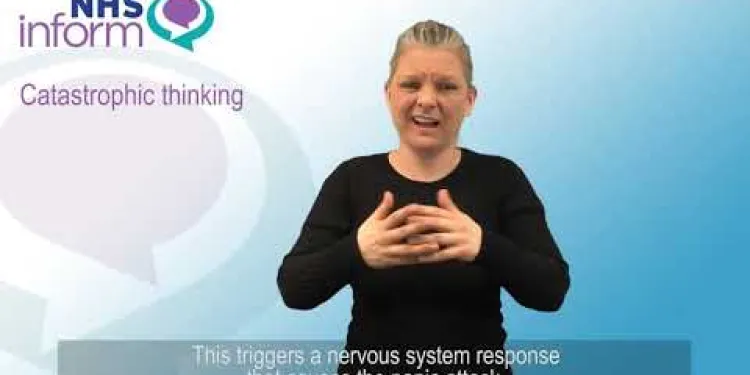
BSL - Causes of panic disorder
Relevance: 35%
-
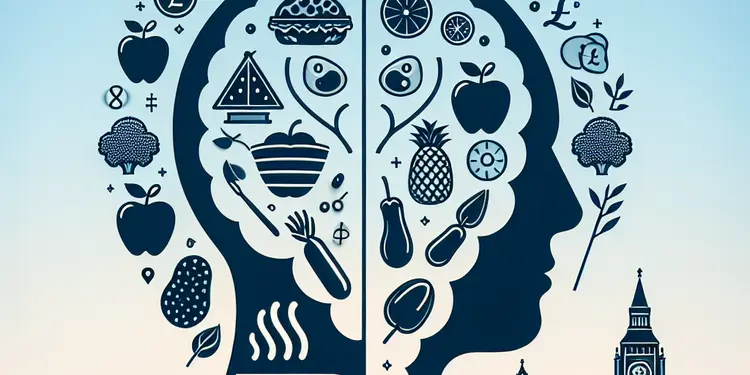
How do eating disorders affect mental health?
Relevance: 35%
-
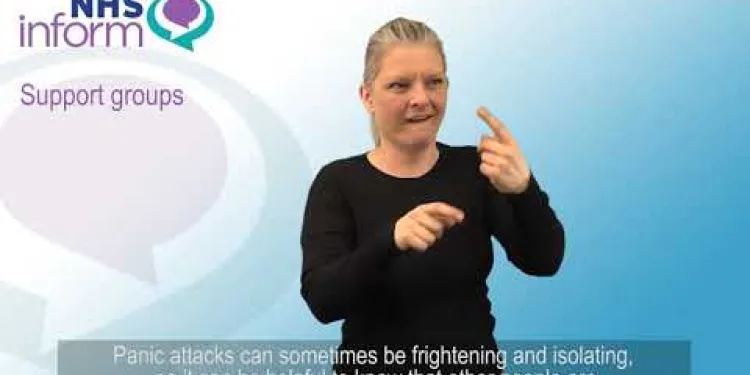
BSL - Treatment of panic disorder
Relevance: 35%
-
What is an Eating Disorder?
Relevance: 34%
-

How is health-related anxiety different from general anxiety?
Relevance: 34%
-
Can eating disorders occur with other mental health conditions?
Relevance: 34%
-

Coping with Stress and Anxiety
Relevance: 34%
-

What causes health-related anxiety?
Relevance: 33%
-
Who is at risk for developing an eating disorder?
Relevance: 33%
-
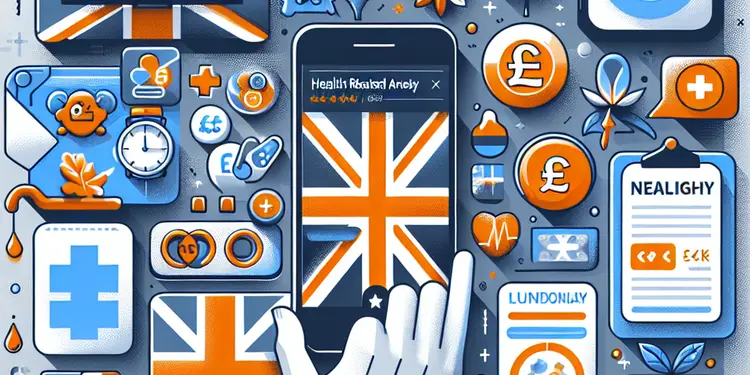
What is health related anxiety?
Relevance: 33%
-
How are eating disorders diagnosed?
Relevance: 32%
-
What are common symptoms of eating disorders?
Relevance: 32%
-
What are the main types of eating disorders?
Relevance: 31%
-

What are common symptoms of health-related anxiety?
Relevance: 31%
-

Short Films About Mental Health - Anxiety
Relevance: 31%
-
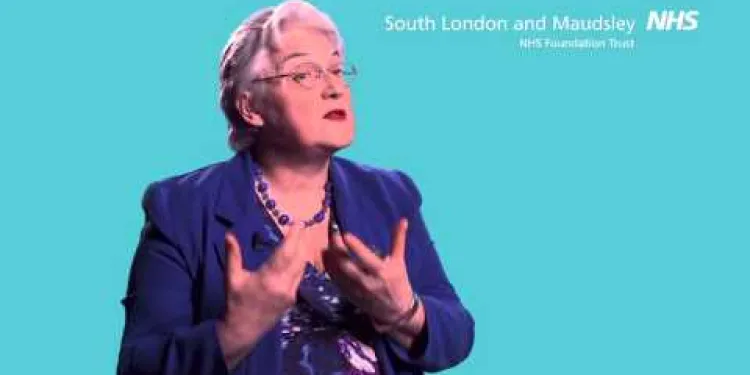
Eating disorders: treatment
Relevance: 31%
-
What is an eating disorder?
Relevance: 31%
-
What are the early warning signs of an eating disorder?
Relevance: 30%
-
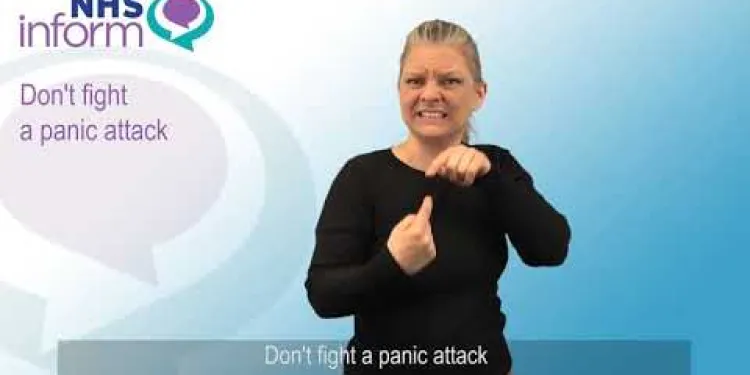
BSL - Panic disorder: things you can do to help yourself
Relevance: 30%
-
What are the long-term effects of untreated eating disorders?
Relevance: 30%
-
What is the role of therapy in treating eating disorders?
Relevance: 30%
-
Are there preventative measures for eating disorders?
Relevance: 30%
-
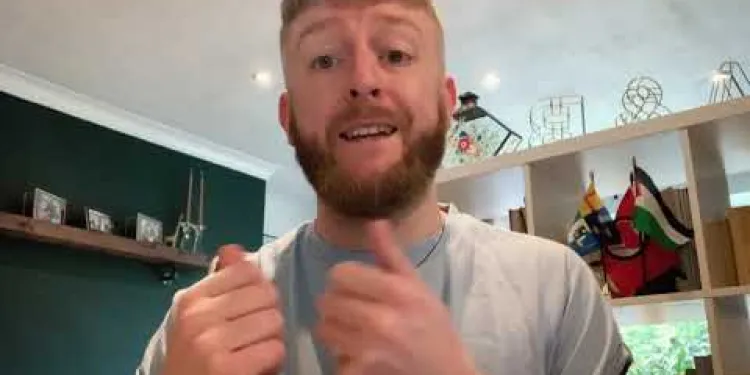
Living with Bipolar Disorder
Relevance: 30%
-
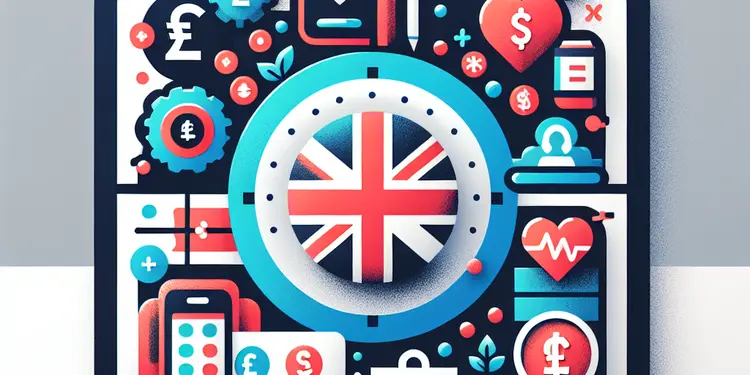
How can family and friends support someone with health-related anxiety?
Relevance: 29%
-

Treating anxiety and depression - www.slam.nhs.uk
Relevance: 29%
-
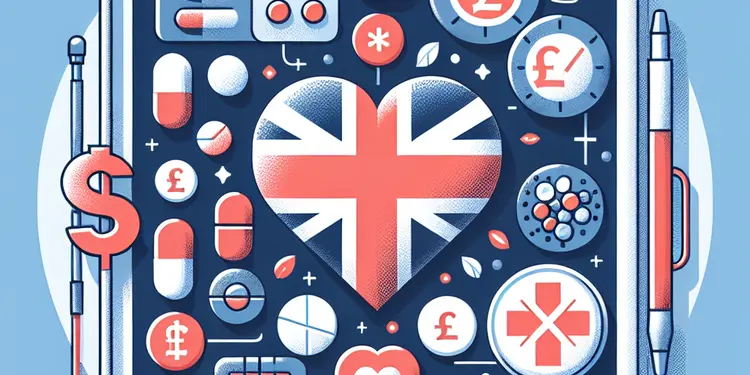
Is medication effective for health-related anxiety?
Relevance: 29%
-
Are eating disorders only about food?
Relevance: 29%
-

Steve Green tells his story on living with a hoarding disorder
Relevance: 28%
Generalised Anxiety Disorder (GAD): Understanding and Managing
What is Generalised Anxiety Disorder (GAD)?
Generalised Anxiety Disorder (GAD) is a common mental health condition characterised by persistent and excessive worry about various aspects of life, such as health, work, social interactions, and everyday situations. This condition often interferes with daily activities and can significantly impact quality of life. Unlike normal anxiety, GAD involves worry that is difficult to control and occurs more days than not for at least six months.
Symptoms of GAD
The symptoms of GAD can vary from person to person but generally include:
- Excessive worry and tension
- Feeling restless or on edge
- Fatigue
- Difficulty concentrating
- Irritability
- Muscle tension
- Sleep disturbances, such as difficulty falling or staying asleep
It's important to note that these symptoms can also be associated with other medical conditions, so a thorough evaluation by a healthcare professional is essential.
Causes and Risk Factors
The exact cause of GAD is not fully understood, but several factors may contribute to its development, including:
- Genetic factors: A family history of anxiety disorders may increase the risk.
- Brain chemistry: Imbalances in neurotransmitters in the brain may play a role.
- Environmental factors: Stressful or traumatic events can trigger GAD.
- Personality: Individuals with certain personality traits, such as perfectionism, may be more prone to anxiety disorders.
Treatment Options
Treatment for GAD typically involves a combination of approaches, including:
- Psychotherapy: Cognitive-behavioural therapy (CBT) is commonly used to help individuals identify and change negative thought patterns that contribute to anxiety.
- Medications: Antidepressants, anti-anxiety medications, and beta-blockers may be prescribed to help manage symptoms.
- Lifestyle changes: Regular exercise, a healthy diet, adequate sleep, and stress management techniques can significantly reduce anxiety symptoms.
- Support groups: Connecting with others who have similar experiences can provide valuable support and coping strategies.
Getting Help for GAD in the UK
If you or someone you know is struggling with GAD, it's important to seek help. In the United Kingdom, there are several resources available:
- NHS: The National Health Service offers information, self-help resources, and access to mental health services.
- Mind: A leading mental health charity that provides support, information, and local services.
- Anxiety UK: A charity that works to relieve and support those living with anxiety disorders.
Remember, GAD is a manageable condition, and with the right support and treatment, individuals can lead fulfilling lives.
Generalised Anxiety Disorder (GAD): Understanding and Managing
What is Generalised Anxiety Disorder (GAD)?
Generalised Anxiety Disorder, or GAD, is a common mental health problem. People with GAD worry a lot about many things like health, work, and meeting people. These worries last a long time and can make life hard. GAD is different from normal worry because it happens most days for at least six months and is hard to stop.
Symptoms of GAD
Different people can have different symptoms of GAD, but they often include:
- Worrying too much
- Feeling restless or nervous
- Getting tired easily
- Having trouble focusing
- Being easily annoyed
- Having tense muscles
- Problems with sleeping, like not being able to fall or stay asleep
These signs can also happen with other health issues, so you should talk to a doctor to make sure.
Causes and Risk Factors
We don’t know exactly what causes GAD, but some things might make it more likely, such as:
- Family: If your family has anxiety problems, you might too.
- Brain: Chemicals in the brain might not be balanced right.
- Life events: Stressful or scary things can start GAD.
- Personality: People who are very hard on themselves might have more anxiety.
Treatment Options
People with GAD can get better with different types of help, including:
- Talking therapy: A special kind of talking therapy called Cognitive-Behavioural Therapy (CBT) can help change negative thoughts.
- Medicine: Doctors might give medicines like antidepressants to help with anxiety.
- Lifestyle changes: Exercise, eating healthily, getting enough sleep, and learning to relax can help a lot.
- Support groups: Talking to others with the same problem can give helpful ideas and support.
Getting Help for GAD in the UK
If you or someone you know has GAD, it's important to ask for help. In the UK, these places can offer support:
- NHS: The NHS gives information, self-help tools, and ways to access mental health services.
- Mind: A charity that offers support, information, and services near you.
- Anxiety UK: A charity that helps people with anxiety problems.
Remember, GAD can be managed with the right help, and people can live happy lives.
Frequently Asked Questions
What is Generalised Anxiety Disorder (GAD)?
Generalised Anxiety Disorder (GAD) is a mental health condition characterised by excessive, uncontrollable worry about everyday situations. People with GAD often anticipate disaster and may be overly concerned about health, money, work, or family issues.
What are the symptoms of GAD?
Symptoms of GAD include persistent worrying, restlessness, fatigue, difficulty concentrating, irritability, muscle tension, and sleep disturbances. Symptoms must be present for at least six months to be classified as GAD.
How common is GAD in the UK?
In the UK, it's estimated that around 5% of the population will experience GAD at some point in their lives, making it one of the most common anxiety disorders.
What causes Generalised Anxiety Disorder?
The exact cause of GAD is not fully understood, but it is believed to be a combination of genetic, environmental, psychological, and developmental factors. Stressful or traumatic life events can also trigger or exacerbate symptoms.
How is GAD diagnosed?
GAD is diagnosed based on a detailed assessment by a healthcare professional, often including a questionnaire and a discussion of symptoms, medical history, and any other relevant factors. It can also involve ruling out other medical conditions that might cause similar symptoms.
What treatments are available for GAD?
Common treatments for GAD include cognitive behavioural therapy (CBT), medication such as selective serotonin reuptake inhibitors (SSRIs), and lifestyle changes including regular exercise, healthy diet, and stress management techniques.
Can lifestyle changes help manage GAD?
Yes, lifestyle changes like regular physical activity, a balanced diet, good sleep hygiene, and mindfulness practices can help manage GAD symptoms and improve overall well-being.
Is medication necessary for treating GAD?
Medication is not always necessary but can be very effective for some people. Treatment plans are tailored to individual needs and may combine medication with therapy and lifestyle changes.
What role does cognitive behavioural therapy (CBT) play in treating GAD?
CBT is a highly effective treatment for GAD. It helps individuals identify and challenge negative thought patterns and behaviours, and develop healthier ways of thinking and coping with anxiety.
How long does treatment for GAD typically take?
The duration of treatment varies depending on the individual and the severity of their symptoms. CBT may take several months, while medication effects can be seen within a few weeks, though long-term management strategies may be needed.
Can children and teenagers develop GAD?
Yes, children and teenagers can develop GAD. It often involves excessive worry about school performance, social situations, and other pressures. Treatment for young people may include therapy and sometimes medication.
How can family and friends support someone with GAD?
Support can include being patient, listening without judgement, encouraging them to seek professional help, and providing reassurance and understanding. It's also important to educate yourself about the condition.
Is it possible to recover fully from GAD?
Many people find significant relief from symptoms with appropriate treatment, though some may experience episodes of anxiety throughout their lives. Ongoing management strategies can help maintain good mental health.
Are there any support groups for people with GAD in the UK?
Yes, there are numerous support groups and organisations that offer resources and community for individuals with GAD. Examples include Anxiety UK and Mind. These organisations provide information, peer support, and access to local groups.
How does GAD differ from normal anxiety?
While everyone experiences anxiety from time to time, GAD involves chronic and excessive worry that is disproportionate to the actual situation and affects daily functioning. It's persistent and impacts work, relationships, and other areas of life.
What is Generalised Anxiety Disorder (GAD)?
GAD is when you feel very worried and nervous a lot of the time. It's more than just feeling worried sometimes. It can make it hard to do everyday things.
Here are some things that can help:
- Talk to someone you trust, like a family member or friend.
- Practice deep breathing to help you feel calm.
- Try drawing or writing about your feelings.
- Play a game or do something fun to take your mind off your worries.
- There are helpers, like doctors or therapists, who can talk to you and help you feel better.
Remember, it's okay to ask for help if you feel worried a lot.
Generalised Anxiety Disorder (GAD) is a health problem that makes people worry a lot. They worry even when they don't have to. People with GAD think something bad might happen. They might worry too much about things like health, money, work, or family.
What are the signs of GAD?
GAD stands for Generalized Anxiety Disorder. GAD means feeling very worried or anxious. This can happen even if there is no big reason to worry. Here are some signs that someone might have GAD:
- Feeling very worried every day.
- Finding it hard to stop worrying.
- Getting tired easily.
- Having trouble sleeping.
- Feeling restless or on edge.
- Having tense muscles.
- Finding it hard to concentrate.
If you or someone you know feels like this, it’s important to tell a doctor or a support person. They can help. Using simple tools like breathing exercises or calming apps can also make you feel better. Try talking to someone you trust, like a family member or a teacher, about it too.
GAD means Generalized Anxiety Disorder. It is when someone worries a lot. The worrying does not go away.
Signs of GAD:
- Worrying a lot.
- Feeling restless and not being able to relax.
- Feeling very tired.
- Finding it hard to focus or pay attention.
- Getting annoyed easily.
- Feeling your muscles are very tight or sore.
- Having trouble sleeping.
These signs need to last for at least six months to call it GAD.
Helpful tools:
- Write down your worries in a notebook.
- Try deep breathing to calm down.
- Ask someone for help or talk to an adult.
- Use a timer to focus on tasks for short times.
How many people have GAD in the UK?
GAD means "Generalized Anxiety Disorder." It is when people feel worried a lot.
In the UK, about 1 in every 20 people has GAD. That means if you count 100 people, about 5 of them might have GAD.
To help understand GAD, you can:
- Talk to a doctor or nurse.
- Visit websites like NHS for information.
- Ask a trusted adult for help.
In the UK, 5 out of every 100 people might have GAD at some time in their lives. This means a lot of people can feel this kind of worry.
What makes people feel very worried all the time?
We don't know exactly what causes GAD (Generalized Anxiety Disorder). It might be a mix of things like your genes, where you live, how you feel, and how you grow up. Sometimes, really hard or scary events can make it start or make it worse.
How do doctors know if someone has GAD?
GAD stands for Generalized Anxiety Disorder. It means feeling worried or nervous a lot.
Doctors ask questions to see if someone might have GAD. They want to know if you feel worried most days and if it makes life hard for you.
Doctors may ask about:
- How often you feel worried.
- If it is hard to stop worrying.
- If you feel restless or tired a lot.
- If it is hard to sleep or focus.
Your doctor might talk to you and also ask you to fill out a checklist or form.
If reading is hard, ask someone to help you understand the questions. You can also use tools like text-to-speech apps to listen to the questions instead of reading them.
A doctor or a healthcare worker checks if someone has GAD. They ask questions and have a talk about how the person feels and any past health problems. They might also ask questions to make sure it is not another illness causing the same problems.
What can help if you feel very worried?
If you feel worried a lot, there are things that can help. These are:
- Talking: Talk to someone who can help, like a doctor or a counselor. They can listen and give advice.
- Medicine: Some people take medicine to feel less worried. A doctor can tell you if this is a good idea for you.
- Relaxing: Learn ways to relax, like deep breathing or listening to calm music.
- Exercise: Moving your body can help you feel better. Try walking, playing, or doing a sport you like.
- Sleep: Getting enough sleep helps your body and mind feel good.
Always talk to an adult you trust or a doctor if you are worried. They can help you find the right way to feel better.
People with GAD, or Generalized Anxiety Disorder, can feel better in different ways.
These ways include talking therapy, like CBT. This is where you talk to someone who can help you change how you think and feel.
Medicine can also help. Some people take SSRIs. These are pills that can make you feel less worried.
There are also things you can do every day to help. You can move your body by doing exercise, eat healthy foods, and learn ways to feel less stressed.
If reading is hard, you can try using audiobooks or asking someone to read with you. Drawing pictures or using apps that read out loud can help too.
Can changes in daily habits help with feeling very worried?
Yes, changing how you live can help you feel better. Doing things like moving your body, eating healthy food, sleeping well, and being mindful can help calm worries and make you feel good.
Do you need medicine to help with GAD?
Medicine is like a special helper. Not everyone needs it, but it can help some people a lot. Doctors make a special plan just for you. This plan might use medicine, talking to someone about your feelings, and changing how you do things every day.
How does CBT help with Generalized Anxiety Disorder (GAD)?
CBT is a type of talking therapy. It helps people change their thoughts to feel better. For people with GAD, it can help them worry less. It teaches people to think in a more balanced way.
If you have trouble reading this, you can use tools like reading apps or ask someone you trust to help you.
CBT is a really good way to help with GAD. It helps people notice and change bad thoughts and actions. It teaches better ways to think and deal with feeling worried.
To help understand better, you can:
- Use a dictionary to look up words you don’t know.
- Ask someone to read with you.
- Use tools that read text out loud.
How long does it take to get better from GAD?
Getting better from Generalized Anxiety Disorder (GAD) can take time. It is different for each person.
Many people start to feel better after a few weeks of treatment. For some, it can take months.
Talking to a doctor or a therapist can help. They can give you medicine or talk therapies to help you feel better.
It is important to keep going to your appointments and follow the advice of your doctor.
Some tools that can help are:
- Writing down your feelings in a journal.
- Doing calming activities like deep breathing or yoga.
- Talking to someone you trust about how you feel.
How long treatment takes can be different for each person. It depends on how bad their symptoms are.
Talking therapy, like CBT, can take a few months to work.
Medicine might start helping after a few weeks.
Sometimes, people need help for a long time.
Tools to help might include setting reminders, using a calendar, or talking to a trusted friend or family member for support.
Can kids and teenagers have GAD?
Yes, kids and teens can have GAD. GAD stands for Generalized Anxiety Disorder. It's when you worry a lot about many things.
If you think your child or teenager might have GAD, talk to a doctor. Using pictures or stories can help them express their feelings. Deep breathing and relaxation exercises can help too.
Yes, kids and teenagers can have GAD. GAD means they worry a lot about things like school, friends, and other stuff. To help them feel better, they might talk to a therapist and sometimes take medicine.
How can family and friends help someone with GAD?
GAD means Generalized Anxiety Disorder. It makes people worry a lot.
Here are ways to help:
- Listen: Let them talk about their worries. Be a good listener.
- Be patient: Understand that they might be very worried. Don't rush them.
- Encourage: Support them to do things that help, like talking to a doctor.
- Stay calm: Help them stay calm by being calm yourself.
- Spend time together: Do fun things together to help them feel better.
Some tools that might help:
- Try deep breathing exercises together.
- Use calming apps or listen to relaxing music.
- Encourage journaling to express feelings.
Help can mean being kind and patient. Listen to them and don't judge. Tell them it is good to talk to a doctor. Let them know you care and that you understand. Learn more about what they are going through.
Can someone get all better from GAD?
GAD means Generalized Anxiety Disorder. It is when someone feels worried a lot, even if there is no big reason to worry.
Yes, people can get better from GAD.
Here are some ways to help:
- Talk to a doctor. They can give medicines to help.
- Speak with a counselor. They help you understand your feelings.
- Practice breathing slowly. This helps calm you down.
- Try to sleep well. Sleeping helps your brain feel better.
Remember, getting better can take time, but it is okay to ask for help.
A lot of people feel better with the right help. But some might still feel worried sometimes. Doing special things can help keep your mind healthy.
Can people with GAD find support groups in the UK?
Yes, people with GAD (Generalized Anxiety Disorder) can find support groups in the UK. Support groups are places where people can talk and share their feelings. They help each other feel better.
Here is what you can do to find a support group:
- Ask a doctor or nurse. They can help you find a group.
- Look online. There are websites that list support groups.
- Call a helpline. Someone can talk to you and give you information.
These support groups can help you feel less alone and learn new ways to cope.
Yes, there are a lot of groups and places that can help people with GAD. GAD stands for Generalized Anxiety Disorder. Some examples are Anxiety UK and Mind. These groups give you information and let you talk to other people. They can also help you find people near you who understand what you're going through.
What is different about GAD and normal worry?
Sometimes, people feel worried. This is normal. But with GAD, people feel worried all the time. This worry is too much for what’s really happening. It makes doing everyday things hard. It can cause problems at work, with friends and family, and other parts of life.
Useful Links
This website offers general information and is not a substitute for professional advice.
Always seek guidance from qualified professionals.
If you have any medical concerns or need urgent help, contact a healthcare professional or emergency services immediately.
Some of this content was generated with AI assistance. We’ve done our best to keep it accurate, helpful, and human-friendly.
- Ergsy carfully checks the information in the videos we provide here.
- Videos shown by Youtube after a video has completed, have NOT been reviewed by ERGSY.
- To view, click the arrow in centre of video.
- Most of the videos you find here will have subtitles and/or closed captions available.
- You may need to turn these on, and choose your preferred language.
- Go to the video you'd like to watch.
- If closed captions (CC) are available, settings will be visible on the bottom right of the video player.
- To turn on Captions, click settings .
- To turn off Captions, click settings again.
More Items From Ergsy search
-

Generalised anxiety disorder (GAD)
Relevance: 100%
-

Treating generalised anxiety disorder (GAD)
Relevance: 93%
-

What type of anxiety do children and teenagers experience?
Relevance: 56%
-

Anxiety | NHS
Relevance: 46%
-

Is health-related anxiety a common condition?
Relevance: 43%
-

BSL - Diagnosis of panic disorder
Relevance: 43%
-

How is health-related anxiety diagnosed?
Relevance: 37%
-

What is health-related anxiety?
Relevance: 37%
-

Anxiety in young people
Relevance: 37%
-

BSL - Introduction to panic disorder
Relevance: 37%
-

Can Music Therapy Be the Key to Reducing Anxiety?
Relevance: 36%
-

BSL - Symptoms of panic disorder
Relevance: 35%
-

BSL - Causes of panic disorder
Relevance: 35%
-

How do eating disorders affect mental health?
Relevance: 35%
-

BSL - Treatment of panic disorder
Relevance: 35%
-
What is an Eating Disorder?
Relevance: 34%
-

How is health-related anxiety different from general anxiety?
Relevance: 34%
-
Can eating disorders occur with other mental health conditions?
Relevance: 34%
-

Coping with Stress and Anxiety
Relevance: 34%
-

What causes health-related anxiety?
Relevance: 33%
-
Who is at risk for developing an eating disorder?
Relevance: 33%
-

What is health related anxiety?
Relevance: 33%
-
How are eating disorders diagnosed?
Relevance: 32%
-
What are common symptoms of eating disorders?
Relevance: 32%
-
What are the main types of eating disorders?
Relevance: 31%
-

What are common symptoms of health-related anxiety?
Relevance: 31%
-

Short Films About Mental Health - Anxiety
Relevance: 31%
-

Eating disorders: treatment
Relevance: 31%
-
What is an eating disorder?
Relevance: 31%
-
What are the early warning signs of an eating disorder?
Relevance: 30%
-

BSL - Panic disorder: things you can do to help yourself
Relevance: 30%
-
What are the long-term effects of untreated eating disorders?
Relevance: 30%
-
What is the role of therapy in treating eating disorders?
Relevance: 30%
-
Are there preventative measures for eating disorders?
Relevance: 30%
-

Living with Bipolar Disorder
Relevance: 30%
-

How can family and friends support someone with health-related anxiety?
Relevance: 29%
-

Treating anxiety and depression - www.slam.nhs.uk
Relevance: 29%
-

Is medication effective for health-related anxiety?
Relevance: 29%
-
Are eating disorders only about food?
Relevance: 29%
-

Steve Green tells his story on living with a hoarding disorder
Relevance: 28%


